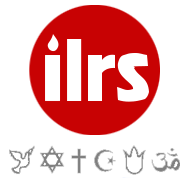Conference on the Future of the European Union: ILRS proposal for an “European Program for Public Management of Religious Diversity”
European democracy
Conference on the Future of the European Union
ILRS´s is taking part at the Conference on the Future of the European Union.
Please read our contribution:
Proposal for an
European Program for Public Management of Religious Diversity
European democracy and religion, in principle, do not have to be incompatible. The Council of Europe in its resolution on “Religion and Democracy” affirms that democracy provides “the best framework for freedom of conscience, the exercise of faith and the pluralism of religions, thus avoiding fundamentalist drifts”; for its part, religion is a valuable complement to democratic society “for its moral and ethical commitment, the values it supports, for its critical approach and for its cultural expression” (1999, Recommendation No. 1,396).
In challenges of the Union such as sustainable development, migration, the fight against social exclusion, education for democratic citizenship, professional training at the height of the changes derived from the digital society, religious actors have, from society civil, a remarkable capacity to contribute to the construction of an inclusive, sustainable, humanistic and democratic Europe.
A growing fact of the countries of the European Union is religious diversity and conscience. The Union, based on the recognition by the Charter of Fundamental Rights of the “right to freedom of thought, conscience and religion” (art. 10.1), wants to build European citizenship in a cosmopolitan, egalitarian and tolerant way: diverse beliefs, equal citizens. Motives of a religious nature cannot be grounds for discrimination or privilege for citizens of the European Union.
A more proactive and normative attitude of the EU
At present, Article 17 of the Treaty on the Functioning of the European Union determines the Union’s respect for the status of religions and organizations of conscience in each Member State and enables the Union to “maintain an open, transparent and regular dialogue with said churches and organizations” (17.3). Since 2015 this dialogue has been developed through various meetings and seminars.
However, new policies need to be adopted. The use of religion by political extremism requires a more proactive attitude from the European institutions in favour of coexistence, tolerance and cooperation. At the same time, more normative capacity before the States against discrimination towards religious communities and phobias for religious reasons towards other groups. The choice of religion or non-religion is a personal matter, but religion as a cultural fact is not a private matter, it is public and therefore requires public management.
European Program for Public Management of Religious Diversity
We propose to promote a European Program for the Public Management of Religious Diversity. From the secularism of the European Institutions, it is proposed to develop a European framework for the public management of religious diversity, which includes policies on places of worship, education, gender equality, cemeteries, public health, spiritual assistance, role of the media, etc.
A fundamental level to implement this policy is that of the municipalities. For this reason, some initiatives are proposed to stimulate and support the policy of the municipalities.
- The elaboration of a Charter of European Municipalities for Tolerance.
- A European Campaign for the attachment of European municipalities to the Charter.
- Creation of a self-diagnosis tool for municipal management policies for religious diversity.
- Advice on good policies.
- European forum for the exchange of good practices.
The municipalities adhering to the Charter for the Municipal Management of Religious Diversity must assume the commitment to guide their management towards the fulfillment of a series of principles and objectives, among them the recognition of religious diversity in the municipality as an expression of cultural wealth. and the pluralism of society; the guarantee of the exercise of the freedom of religion, as well as the promotion of the conditions so that the equality and freedom of the individuals and of the groups in which they belong are effective; and the elimination of all forms of unjustified discrimination based on beliefs, as well as the promotion of policies, directed to this end.
Other points that the Charter could contain are the promotion of respect, understanding and tolerance towards religious diversity; the promotion of inter-administrative coordination and collaboration, establishing channels of dialogue and agreements with other municipalities or other administrative bodies; the adoption of mechanisms for consultation and participation of religious communities to guarantee the integration of minority groups and avoid conflictive situations; and the promotion of spaces for dialogue and mutual knowledge between the churches, confessions and religious communities of the municipality.
The signatory municipalities would have access to a self-diagnosis tool that provides them with information on the level of adaptation of their municipal management to the principles and objectives of the Charter; specialized technical advice at any time; training tailored to your needs; participation in forums for the exchange of experiences between municipalities; and the possibility of participating in an external evaluation program for the improvement of municipal management of religious diversity and developing their own improvement plans with a team of experts.
